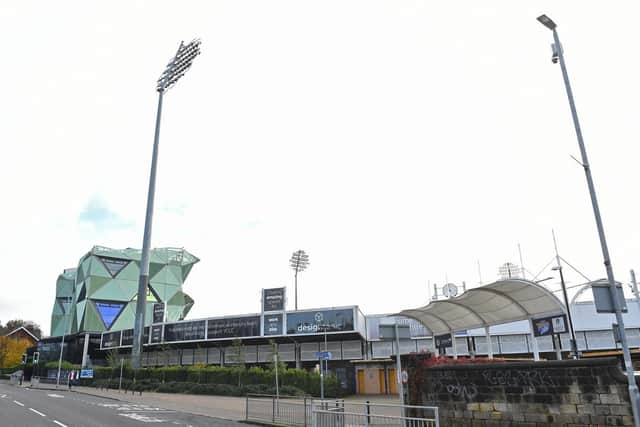Lessons to be learned from Yorkshire County Cricket club's mishandling of a crisis - Rashmi Dube
But the circumstances of this case study means it lends itself to far much more than lessons to be learned around a crisis. The lessons here are buried deep in the board, policies, and governance. The lessons here apply to organisations of all sizes, whether for profit, not-for-profit or a member organisation.
We are all used to the term crisis – in fact, it now feels like second nature – but dealing with an economic calamity or the impact of a pandemic doesn’t often have an impact on the organisation’s brand. What happens when it all goes wrong?
Advertisement
Hide AdAdvertisement
Hide AdIrrespective of the size of an organisation, an attack on the brand can mean no return. Any crisis management and originating issue always lies with the board.


Over time, we have seen a number of organisations struggle with this issue, but what is important for outsiders is not to simply “get on with business” and ignore any current events, such as the crisis being faced by Yorkshire County Cricket Club, but rather to watch closely, react in accordance with your values, purpose and polices, and understand the world has evolved and ensure the voices of everyone are being heard.
This, of course, applies to our personal brands and not just the organisation’s. I find it fascinating that a lot of organisations are still “finding their feet” in respect of social media’s influence, but also more fundamentally, are struggling to truly understand that values and culture are not words that you put in polices or club rules.
For instance: “The Club is a diverse and inclusive organisation and in pursuing its objects it is committed to confronting and eliminating the discrimination of age, disability, gender, gender reassignment, marriage or civil partnership, pregnancy and maternity, race, religion or belief.” (The Yorkshire County Cricket Club Rules dated March 21, 2020).
Advertisement
Hide AdAdvertisement
Hide AdAny board has to live and breathe it, showing true leadership in its words to ensure that a true shared culture exists in the entire organisation and also among its stakeholders, Often a criticism that football clubs face is their lack of focus in stamping out racism of their supporters – one of their stakeholders.
There are lessons to be learnt from any brand crisis that arises regardless of size. The first is around the practicalities of it – the immediate response:
1. Conduct a full investigation – and bring in expertise from outside.
2. Have one team set up for the investigation and ensure you have one leader/one voice representing the investigation. This is often a non-executive.
Advertisement
Hide AdAdvertisement
Hide Ad3. Co-operate in full with all regulated bodies and anybody investigating the crisis.
4. Set up communications. This should be both internally and externally. Who has been impacted or affected by the situation? Can they contact the organisation?
5. Finally, engage with a public relations company, in part to bring in expertise and also to give a central point for media to direct all questions to.
Replacements are key. After all, the buck cannot be passed on to anyone else and you can’t accept others being reluctant to act. Each board member and chair has a responsibility to act and to push as hard as they can to ensure the S (social) and G (Governance) is being addressed.
Advertisement
Hide AdAdvertisement
Hide AdWhen a crisis occurs that can have a long-lasting impact on the brand and possibly the longevity of an organisation, the real question to ask is who has been sitting at the table the whole time the fire was burning and how can they be held accountable? In terms of change, the process is slow and the trust has to be built but the actions have to be authentic and in line with the organisation’s true values and purpose.
By Rashmi Dube - Partner – gunnercooke
